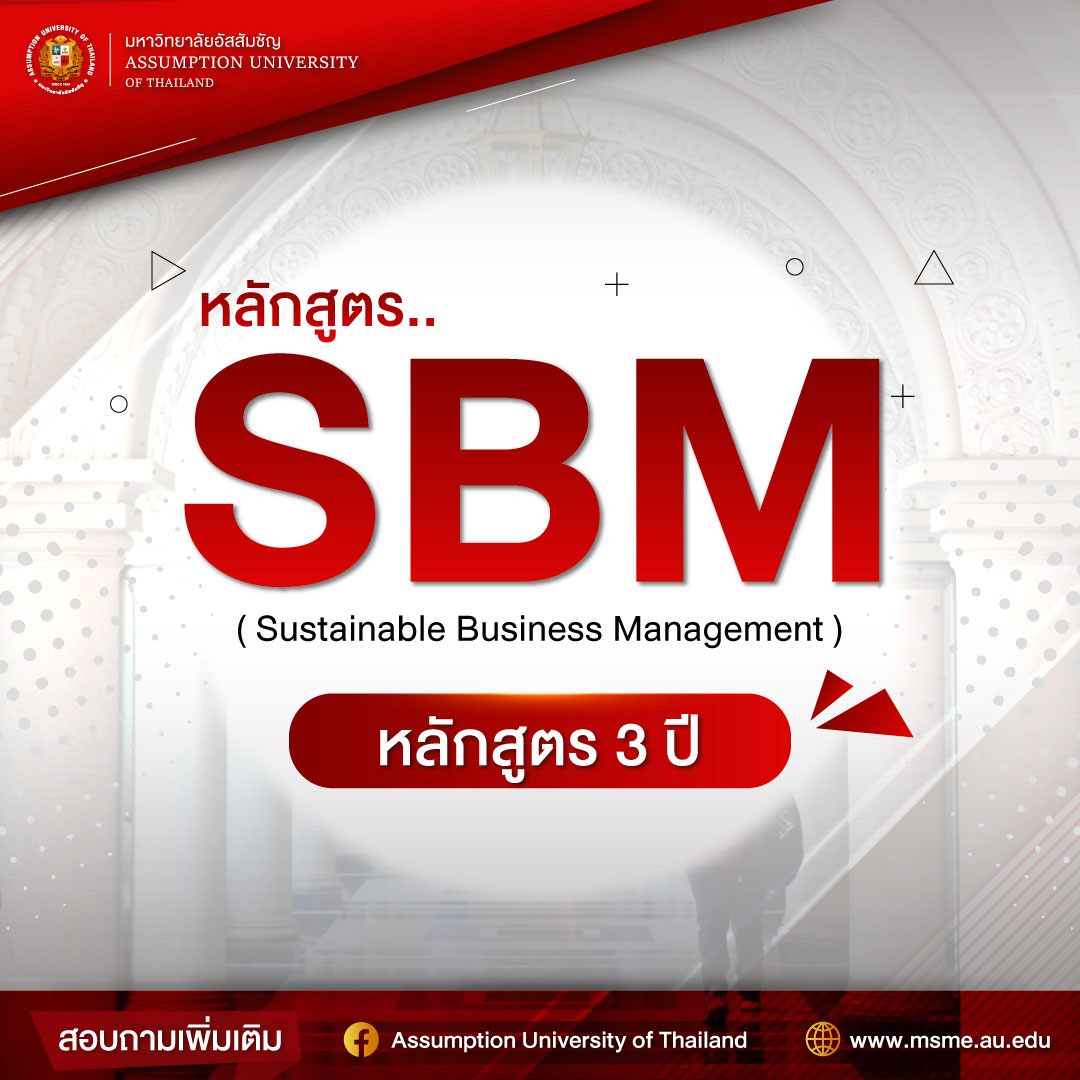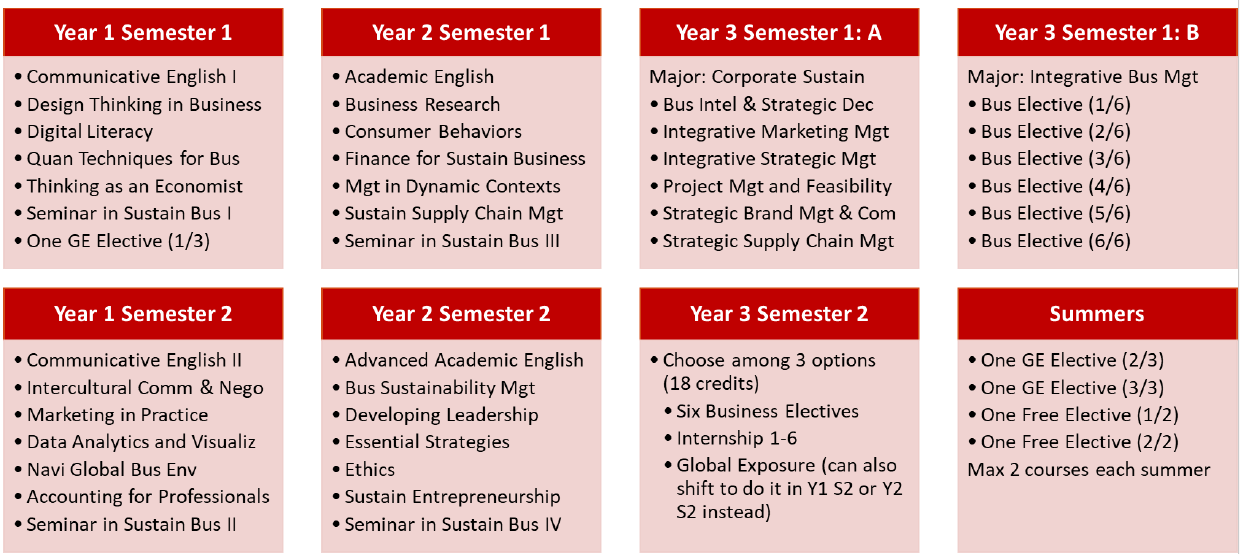
Bachelor of Business Administration in Sustainable Business Management (SBM)
Program Highlights
- 3-year program for those who want to be leaders with digital literacy and sustainability mindset
- Two majors: Corporate Sustainability and Integrative Business Management
- Up to 42 credits of design-it-yourself set of courses
- Up to two semesters of global exposure with one-semester tuition included(e.g. Australia, Europe, and the U.K.)
- Studying one semester abroad can be in the second semester of Year 1, 2, or 3
- Studying two semesters abroad should be in Year 3
Environmental, Social, and Corporate Governance (ESG) is now a must-have factor in running businesses due to a shift in societal expectations, regulatory changes, and a growing recognition of the link between business success and well-being of stakeholders.
- Energy: Renewable and clean energy sources
- Manufacturing: Responsible manufacturing and waste reduction
- Food and beverages: Sustainable agriculture and responsible sourcing of raw materials
- Consumer goods: Responsible marketing
- Banking: Responsible lending and investment
Program Structure


